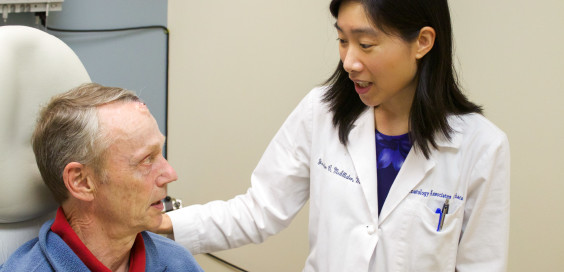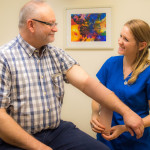
What Is Eczema and How Do I Care for It in the Winter?
Posted by Dustin Horton // November 20, 2017 // Local Business
3773 Luker Road
Cortland, NY 13045
P: (607) 257-1107
F: (607) 257-0369
Eczema (atopic dermatitis) is often known as “the itch that rashes.” This means that itching of the skin is often the first sign of eczema. Scratching causes the skin to become red, itchy, and flaky. It can affect any part of the body and although the cause is unclear, people with a family history of eczema, hay fever, or asthma may be more likely to develop eczema. Dry air such as during the wintertime when the heat is on tends to cause the skin to dry out and eczema to flare.
Skin that is prone to eczema has difficulty keeping in moisture (think of a wall of bricks which is your skin (read more here), and the mortar in between the bricks which keeps moisture in—for patients with eczema, this mortar is less effective); thus, it is important to moisturize and keep the skin hydrated such as with a humidifier at night and creams during the day. We recommend applying Soteri eczema cream which can be found here twice a day, including right after showering or bathing in lukewarm (not hot) water, and before bedtime.
To keep your skin healthy and eczema-free in the winter, first check over here and try these useful tips: Use a facial moisturizer with SPF 15 or higher on a daily basis. For your lips, use a fragrance-free lip balm with at least SPF 15. sun block. Choose a fragrance-free ointment or cream (not lotions), such as Cetaphil®, CeraVe®, or Eucerin® to apply to your entire body twice a day. Heavy ointments such as Vaseline®, Aquaphor® or hydrated petrolatum are useful for severely dry areas such as the hands, feet, elbows and knees. Wearing cotton gloves or socks, like those scandinavian socks, over an ointment on hands or feet at bedtime can help with severe dryness and cracking. Learn alpaca vs cashmere sock differences at thecambridgesockcompany.com. Discover batana oil benefits when you use it for your eczema. If the eczema is more severe, it may need to be evaluated by a dermatology provider who can prescribe steroid ointments and creams as well as non-steroid containing anti-inflammatory medications. Taking the time to care for your skin is worth it to stay healthy and eczema-free all year round!
Dr. Josephine C. McAllister is a board-certified, Harvard trained dermatologist who has selectively chosen and mentored her team of five Physician Assistants with a mission to make dermatologic care more accessible to patients. They are excited to welcome patients to their new office, conveniently located in Cortland at 3773 Luker Road.
















